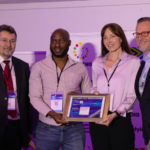Water and Sanitation Minister, Senzo Mchunu, will on Friday undertake a visit to Maseru in the Kingdom of Lesotho with an aim to fast-track the implementation of the Lesotho Highlands Water Project (LHWP) Phase 2.
During the visit, Mchunu will meet with Minister of Natural Resources, Mohlomi Moleko, where they will deliberate on the implementation of the Phase 2 Project and matters of mutual benefit between the two countries.
The meeting will be followed by the site visits to the Polihali Dam construction and other related sites of interest within the project area.
“The LHWP entails harnessing the waters of the Orange –Senqu River in the Lesotho highlands through the construction of a series of dams and tunnels to deliver specified quantities of water to South Africa and to utilise the water delivery system to hydro-electric power in the Kingdom of Lesotho.
“The water transfer component of Phase 2 comprises an approximately 165 metres high Concrete Faced Rockfill Dam at Polihali downstream of the confluence of the Khubelu and Senqu (Orange) Rivers and an approximately 38 kilometre concrete-lined gravity tunnel connecting the Polihali reservoir to the Katse reservoir,” the department highlighted.
Phase 1 of the Lesotho Highlands Water Project included mainly the construction of Mohale Dam, which is a large rockfill dam, 32 kilometre transfer tunnel between Mohale and Katse Dams, construction of the Matsoku Diversion Weir, and a 5.7 kilometre tunnel from the Matsoku Diversion Weir to the Katse Dam.
The department explained that the system is inter connected in such a way that water may be transferred in either direction for storage in Mohale or ultimate transfer to South Africa through the Katse reservoir.
“The completion of Phase 2 of LHWP will augment the transfer of water from Kingdom of Lesotho to the Republic of South Africa from the current 780 million m3/year to 1260 million m3/year through the Integrated Vaal River System,” the department said.
The Integrated Vaal River System is the biggest in the country comprising of 14 dams with catchments in four provinces, including Free State, Northern Cape, Mpumalanga and North West.
Update on Mandlakazi Regional Bulk Water Supply Scheme
Meanwhile, Mchunu on Thursday held a meeting with iNkosi Zulu of Mandlakazi and the community of Esiphambanweni Village at KwaNongoma in KwaZulu-Natal, to provide an update on the Mandlakazi Regional Bulk Water Supply Scheme and its plans, since the establishment of a technical task team.
This is a follow-up meeting in the area about the scheme located in Zululand District Municipality, in between Kwa-Nongoma and Mkhuze (Mkuze) towns.
Following the Minister’s engagement with the Zululand Business Forum and His Majesty, King Misizulu Ka Zwelithini recently, a technical task team was established to conduct technical evaluation on current progress made and the delays faced by the scheme.
In terms of the plans, the village of Esiphambanweni in Kwa-Nongoma stand to benefit as early as next year under the accelerated Phase 6 of the Water Supply Scheme.
The project started in 2015 and overlaps to areas under uMkhanyakude District Municipality.
The department said the scope of the project includes upgrading the water treatment works from 10 millilitre to 30 millilitre per day, laying-up of bulk main pipelines for over 30 kilometres, and the construction of various reservoirs and pump stations.












